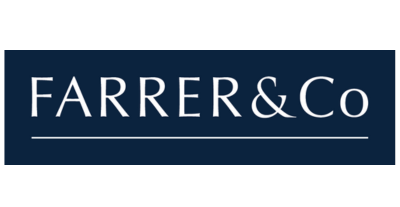Knowledge Hub
Join the Conversation!
Impartial and independent, ThoughtLeaders4 HNW Divorce Knowledge Hub hosts cutting edge industry content and insight.
Email maddi@thoughtleaders4.com to submit content.
Oppression Mismanagement In Family Owned Companies and Tempering The Unbridled Casting Vote by NCLAT
Date: 10/09/2024 Type: Articles Topic: Private Client | Trusts | Wills and Estates | Inheritance | Next Generation Wealth | Investment and HNWI’s | Tax |The Hon’ble National Company Law Appellate Tribunal (NCLAT), New Delhi Bench recently considered oppression and mismanagement under section 241-242 of the Companies Act, 2013 in the context of a family-owned business. One of the issues was whether the company along with other business entities were in the nature of a quasi-partnership. The NCLAT upheld the judgment of the Hon’ble National Company Law Tribunal (NCLT), Mumbai Bench dated April 1, 2022 in Company Petition No. 12/MB/2019 in Sunil M. Thakkar & another v. Venus Petrochemicals (Bombay) Private Limited & others wherein it was directed that:
- Both branches of the family (i.e. holding 50% of the shareholding each) shall be entitled to equal number of representation in the board of directors of the company;
- Since it was observed that the casting vote was heavily misused by the Chairman, it shall not be available to either side and all decisions will be taken only when representatives of both sides are represented in equal number on the board and agree to the resolution;
- Bank accounts shall be operated under the joint signature of representatives from each branch of the family.
This is an interesting judgment because the Hon’ble NCLAT upheld the above directions of the Hon’ble NCLT in Sunil M. Thakkar (supra) and also applied the ratio of the Hon’ble Supreme Court in Tata Consultancy Services Pvt. Ltd. v. Cyrus Investments (P) Ltd. ((2021) 9 SCC 449).
Findings of the NCLT in Sunil M. Thakkar[1]:
Some of the material findings of the Hon’ble NCLT are as follows:
Although each branch held 50% shareholding of the company, but one branch was effectively pushed out of the board where they should be having 50% representation. The conduct of the parties was considered, and it observed that the controlling branch acted with malafide intention.
Whilst coming to the finding that there was ‘oppression’ by the controlling branch of the family, it considered the following factors:
- Increasing remuneration for the controlling branch and simultaneously discontinuing remuneration to the other branch of the shareholders.
- Despite the company being profitable, the controlling branch did not declare any dividend, but side by side infused funds into a loss making off-shore subsidiary (i.e. also controlled by the controlling branch of the family).
Further, it held that important and critical decisions which should be discussed in board meetings like financial statements, directors’ annual reports, offering corporate guarantees to company, appointment of additional directors, etc. were passed through circular resolutions and put up for ex-post factor approval of the board. This was done despite opposition from the non-controlling branch holding 50% shareholding in the company. As such, these actions were not in line with the tenets of good corporate governance.
For these reasons, it held that the controlling shareholders disturbed the return of “quasi partnership of the company” and this was coupled with appointment of the heirs of the controlling branch being appointed as directors of the company.
Tata Consultancy’s case:
The Hon’ble Supreme Court in this landmark decision observed that:
- For superimposing an equitable fetter on the exercise of rights conferred by the articles of association there must be something in the history of the company or relationship between the shareholders.
- For invoking the just and equitable standard, the underlying principle is that the court should be satisfied either that the partners cannot carry on together or that one of them cannot certainly carry on with the other.
- A breakdown of trust and confidence is enough even if there is not a complete functional deadlock for the above principle to be applied.
Hon’ble NCLAT’s decision in Venus Petrochemiclas (Bombay) Private Limited & others v. Sunil M. Thakkar & others[1]
The issues framed by the Hon’ble Tribunal are as follows:
- Whether, the action taken by the controlling shareholders to appoint heirs on the board of directors, denial of the appointment of non-controlling shareholders on the board of directors, alleged wrongful infusion of money in an off-show subsidiary, denying the opportunity in participating in the management of the company constitutes “oppression and mismanagement”.
- Whether the company along with other family owned business entities were in nature of quasi-partnership.
- Whether 50:50 equity shareholding by each branch of the family can become basis for equal representation in the board of directors.
- Whether the Adjudicating Authority (NCLT) had the power to impose the conditions/fetters, as stated hereinabove.
- Whether the casting vote is a privilege of the Chairman of the board of directors or it can be done away by the Adjudicating Authority (NCLT) as directed in its order.
Relying on the judgment of Ebrahimi v. Westbourne Galleries Ltd. & others ((1972) 2 All ER 492 (House of Lords)), and Tata Consultancy Services (supra), the Hon’ble NCLAT held that the company does constitute a quasi-partnership. Further, that only being family controlled companies cannot be a ground to treat a company as a quasi-partnership, but the intent and understanding, whether explicit or implicit through acts/deeds of the parties would be and should be relevant factors to determine whether the company constitutes a quasi-partnership.
The three factors test in Ebrahimi’s case (supra) considered by the Hon’ble NCLAT is as follows:
- An association formed or continued on the basis of a personal relationship, involving mutual confidence – this element will often be found where a pre-existing partnership has been converted into a limited company;
- An agreement, or understanding, that all, or some (for there may be ‘sleeping’ members), of the shareholders, shall participate in the conduct of the business; and
- Restriction upon the transfer of the members’ interest in the company – so that if confidence is lost, or one member is removed from management, he cannot take out his stake and go elsewhere.
Pertinently, the Hon’ble NCLAT observed that the distribution of dividend is a financial or corporate decision of a company and cannot be treated as an oppressive act. However, the participation in the affairs of the management can be a legitimate expectation of members holding substantial equity share in the company. The action of the controlling branch to use the casting vote overrules the will of the non-controlling shareholders, and this appears to be to take over control of the company coupled with the fact that the heirs of the controlling branch were inducted as directors on the board of the company.
In so far as the casting vote is concerned, the Hon’ble NCLAT considered each instance when the casting vote was exercised by the chairman of the controlling branch. It was observed that ‘oppression’ may take different forms and need not necessarily be for obtaining pecuniary benefit. It may be due to a desire to obtain power and control, or may be merely vindictive.
Authors’ comments
The judgment of the Hon’ble NCLAT is significant because companies that are family owned/controlled are structures that may require some revisiting/modification to incorporate succession planning mechanisms to avoid such scenarios. Although both parties were trying to bring their heirs on the board, one branch was able to control it due to the casting vote provided in the Articles of Association.
Regarding governance, an unfettered use/exercise of a ‘casting vote’ may be struck down and the Hon’ble NCLT/NCLAT may restrict/restrain the usage/exercise to maintain equitable balance among family owned companies.
As such, this judgment does lay down some contours for oppression and mismanagement in family owned companies and provides visibility of the extent of interference in a shareholder’s agreement/ articles of association to ensure equity among branches of family that is inferred/deduced from historical data and intent behind the incorporation and management of the company.
[1] Dated August 14, 2024 in Company Appeal (AT) No. 65 of 2022
Author
Yuvraj Choksy (Principal Associate) - Argus Partners, with inputs from Ranjit Shetty (Senior Partner) - Argus Partners
Our HNW Divorce Corporate Partners















